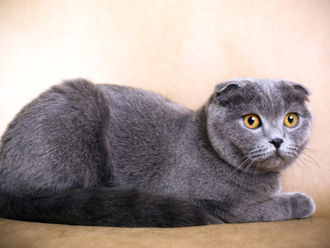
The UAE’s drinking a lot of tea
Currently, the UAE consumes about seven million kilograms of tea per annum, according to Dubai Tea Trading Centre.
Euromonitor’s 2012 study points out that the sector is expected to remain healthy between 2011 and 2016 in terms of both value and total volume, with annual growth rates of 7 per cent and 8 per cent respectively.
The growth in the UAE tea industry will be largely fuelled by the rise in the number of high-end tea outlets, recovery of the tourism industry and fast-paced increase in population. In addition, growing health awareness is also likely to play a role in pushing consumption of healthy products such as green, fruit and herbal tea.
The future of the coffee industry
This category is expected to reach Dh359 million by 2016 growing at a rate of 4 per cent, as per a study conducted by market research firm Euromonitor in 2012. The industry is expected to achieve healthy growth between 2011 and 2016 in terms of both off-trade constant value and total volume, it states. Raef Labaky, Business Executive Manager, Coffee and Creamers, Nestlé Middle East, says, “The GCC has traditionally been a coffee drinking region and now we are seeing consumers getting introduced to new varieties. Although coffee still remains a relatively small category in the non-alcoholic beverage segment, it is one of the fastest growing categories.”
Loose leaf vs bags: it’s half and half
The share of tea bags in the GCC tea market is up to 50 per cent, says Ranjith Abeykoon, Director, Ceylon Tea Promotion Unit, Consulate General of Sri Lanka. This trend is attributed to convenience and now more and more people are opting for tea bags over loose tea. “Even a decade ago the share of tea bags was just 10-15 per cent of the market. The less developed countries in the Middle East, however, still consume more loose tea than tea bags due to the price advantage,” says Abeykoon.
Green and infusion teas gain favour
With consumers warming up to experimenting with food and drink, the demand for green, fruit and herbal infusion tea seems set to rise further.
Tea manufacturers have been quick to recognise opportunities in the category and have launched a range of innovative products that meets consumers’ needs.
Waqas Javed, Food and Beverages and Home, Marketing Director, Unilever Gulf, says, “The size of the industry is growing and we have expanded our portfolio to include green tea, speciality tea, chai latte and many more variants.”
Home brews are getting classier
Between 2010 and 2012, we have seen a 47 per cent increase in sales of home espresso and capsule machines. More people are venturing away from soluble/instant coffee and experimenting with a variety of coffee beans and roasts,” says Ryan Godinho, Events Director, International Coffee and Tea Festival, Dubai. International Coffee and Tea Festival is the only dedicated event in the Middle East catering to the coffee and tea industry. “In the past two years, we have also seen a gradual readaptation of old-style manual brewing methods such as pour overs and vacuum infusions that have proven to dramatically enhance the flavours of homemade coffee,” Godinho adds.
The Euromonitor report on the UAE’s coffee sector also points out that freshly ground coffee is expected to see growth in the next few years in both off-trade value and total volume terms, with annual growth rates of 7 and 10 per cent respectively. With more cafés expected to open around the country and rising disposable incomes in the wake of expected growth in GDP per capita over the next five years, sales of fresh coffee are likely to benefit.
Tea percolates through Dubai at a stimulating pace
The UAE imports more than 70 million kilograms of tea for blending, packing and re-exporting.
“The Middle East and adjacent regions account for approximately 25 per cent of global tea imports. The UAE is the world’s largest re-exporter of tea with a 60 per cent share of the market. Dubai is the second-largest export destination for both Indian and Sri Lankan tea,” says Sanjeev Dutta, Director, Dubai Tea Trading Centre (DTTC).
Dubai Tea Trading Centre was launched by Dubai Multi Commodities Centre (DMCC) in 2005 to strengthen and facilitate the expansion of Dubai’s tea trade in accordance with international best practices.
Spread across 23,731 square metres in the Jebel Ali Port, DTTC is a dedicated facility offering its members warehousing, blending and packaging solutions. Through this facility, DTTC allows international tea producers and merchants to hold stocks of tea to be readily available to meet the immediate requirements of importers in the Middle East and surrounding regions. This offers exporters and purchasers the convenience of obtaining a variety of teas from multiple origins.
DTTC has expanded its range and reach to process teas from 13 countries, including Kenya, India, Sri Lanka, Indonesia, Malawi, Rwanda, Tanzania, Zimbabwe, Ethiopia, Vietnam, Nepal, China and Iran.
In keeping with its mandate to further increase the tea trade in and through Dubai, the DTTC also facilitates sales with buyers in the GCC countries, Iran, Iraq, Jordan, Morocco, Pakistan, Afghanistan and the CIS countries and is in the process of expanding its services to other Middle East and European markets.











